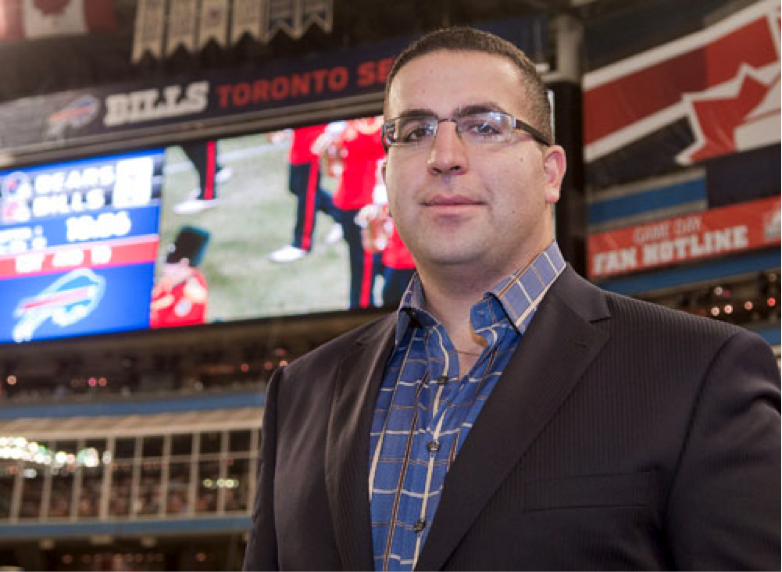They say home is where the heart is. For a period of time, Bishop’s University actually was home for Sportsnet’s Arash Madani, who had a chance to revisit his roots when he spoke to journalism students at his alma mater this past Tuesday.
After serving as a broadcaster for his school’s varsity basketball teams and starting out as a writer for The Record, Madani knew where his true passion lied and ultimately decided he wanted to make a career out of it.
It was years of hard work and dedication to his craft that allowed him to turn his dream into a reality. Madani now stands for a Canadian national sports television network and has an opportunity to travel the globe, covering the latest news, stories and features that unfold in the fascinating world of sports.
But the corporate side of the business he became fortunate enough to represent is far from fascinating if you’re looking to break into it, let alone stay afloat once employed.
In the wake of a series of cuts within a unique journalism industry that has kept every reporter vigilant, the most important message that he wanted to get across is that the game has changed, in fact, it’s evolving at an unprecedented rate.
Long before Madani wrote his first column and became infatuated with sports, the amount of ways in which people could obtain information and stay up-to-date with news was limited at best.
Back in the day, if you were lucky, you had a morning newspaper, the lunch time radio, and the 6 o’clock evening news to keep you in the loop.
Today, thanks to social media in particular, anything you need is right there in front of you, be it on your tablet, smartphone, laptop, you name it.
The luxury of having instant access explains why today’s athletic trainers are among the last to find out about developments in their own organization. That’s the reality of the world we now live in.
In light of his contemporaries losing their jobs or on the verge of being shown the door (Rogers Media announced Monday it plans to cut 200 jobs across its television, radio and publishing divisions), Madani has successfully managed to avoid peril, doing everything in his power to stay alive in a competitive sector of the workforce that has ostensibly shrunk thinner by the day.
“Depending on what my bosses ask of me, I can be a talk show anchor, a feature television reporter, a sideline reporter, a writer and a podcaster, ” the versatile 35-year-old reminded his audience in regards to what it takes in order to be effective and experience some form of job security, adding: “Those are the things you have to do in order to stay employed. That’s the reality of a business that is continuously evolving. You have to be better than the competition. Be as best prepared as you can possibly be.”
Lay-offs can be difficult for anyone to swallow, but they come with the territory. When the owners of a company such as media giant Rogers realize that their profits are down, somebody’s going to get the short end of the stick.
At that point, the higher-ups need to go back to the drawing board and figure out how they can monetize what they’re providing during a time when everyone gets content for free.
Fortunately, sporting fanatics still want to watch games and get results. They also crave the inside scoop, but by the same token, they won’t hesitate to turn on you if you leak something that eventually proves to be inaccurate.
That’s why Madani stressed the importance of getting every little detail correct, even at the expense of being late. “Being 99 per cent right is essentially being 100 per cent wrong, and if you are wrong, then your credibility is shot.”
On a more positive note, Madani looked back at the time he spent at Bishop’s and saw it as a foundational stepping stone to get to where he wanted to be. After all, it was there that he learned the proper way to talk to and interact with those around him.
The parting words he had for the attentive bunch that sat before him were simple: “Be yourself, and be the last man standing.” Quite fitting given the circumstances that have defined his industry in recent memory
Madani returns to alma mater, speaks to students
By newsroom





